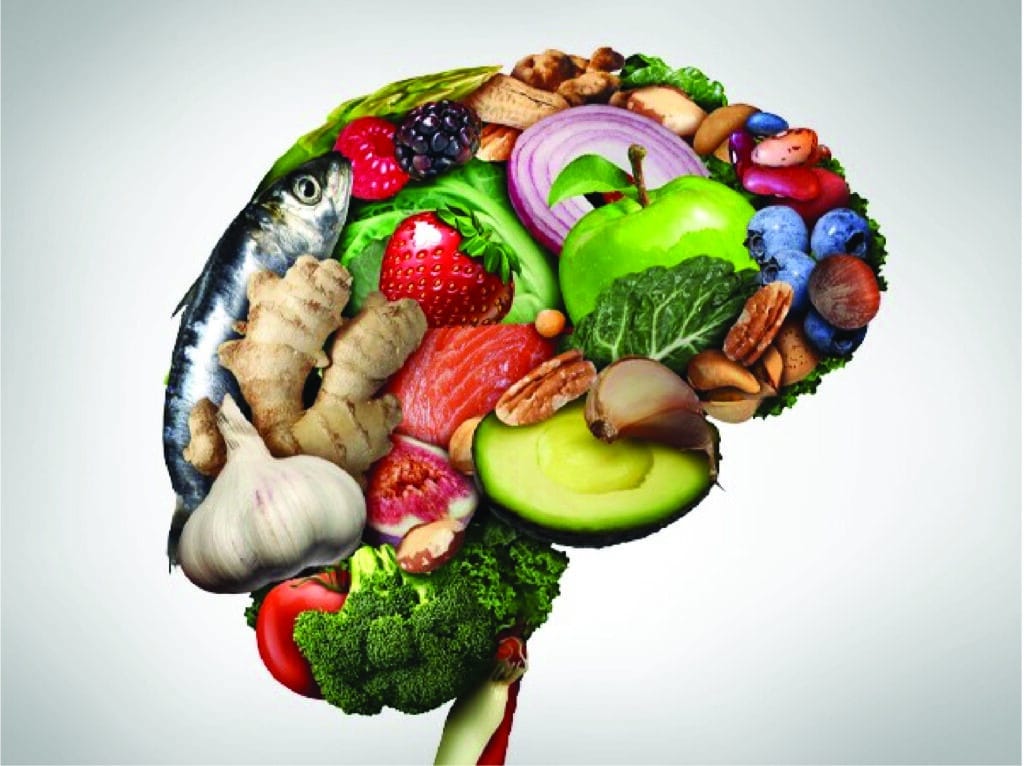
How to Use Nutrition to Take Care of Our Mental Health
By Sami Schab, MSW, LCSW
For many people, the words ‘nutrition’ and ‘diet’ are correlated with thoughts of physical health and appearance. However, the growing field of nutritional psychiatry is proving that our food goes far beyond this, and in fact directly impacts our mental health. Foods’ most significant effect on the brain is through its impact on the gut, where our bodies produce the necessary chemicals that support cognitive functioning and emotional regulation.
Nutrition Tips that Support Mental Health
Foods to Consume with Caution
Highly processed foods, high GI carbohydrates, and high (unhealthy) fat foods are all found in a typical Western diet. These foods have been associated with increased levels of cortisol and also inhibit anti-depressant amino acids in the brain, connecting to higher levels of depression. White breads, pastas, potatoes, fried foods, and processed foods should all be consumed with discretion.
Sugar causes an inflammatory response in the body which is linked to increased prevalence of anxiety and depression. It is beneficial to be mindful of one’s added sugar intake, as men should limit to 37.5g and women 25g or less. Artificial sweeteners should also be avoided as they can impact gut health.
Nitrates that are used as an additive in many cured meats such as salami, bacon, and sausage have been linked to increased rates of depression. If you are consuming these foods, try to look for a nitrate free option.
Caffeine can activate an area in the midbrain that typically activates when our brain senses a predator. Caffeine is also an inhibitor of the amino acid, tryptophan, which is a precursor to serotonin. For those who experience anxiety, caffeine should be used with discretion. It is recommended that caffeine intake stays under 400mg a day.
Mood Boosting Foods
Essential Fatty Acids protect the brain from inflammation and have been found to be successful in assisting in the treatment of anxiety and depression. The following foods include healthy fats that should be considered in our daily diets:
● Fatty fishes such as salmon, tuna, mackerel, anchovies, sardines, etc.
● Seeds & nuts such as chia seeds, flaxseeds, pumpkin seeds, walnuts, almonds, etc.
Probiotics & Prebiotics support normal gut bacteria and in turn support the production of important neurotransmitters, which are the chemical messengers that assist with many important functions in the body, including regulating our moods. Consider increasing your daily intake through the following foods:
● Fermented foods such as yogurt, kimchi, sauerkraut, kombucha, etc.
● Foods that contain prebiotics such as garlic, onions, bananas, oats, etc.
Dietary Fiber assists with the growth of healthy gut bacteria and decreases inflammation in the body. Fiber-rich foods take longer to break down, which in turn energizes our bodies longer. Diets higher in fiber-rich foods have been shown to assist in alleviating anxiety and stress. Consider the following foods:
● Fruits & vegetables such as berries, brussel sprouts, bananas, broccoli, artichokes, etc.
● Legumes & grains such as beans, brown rice, oats, barley, etc.
Selenium is a mineral that has been shown to assist in regulating mood and in turn, assists with feelings of anxiety and depression.
● Brazil nuts are a great source of selenium, and the daily recommended amount can be achieved through eating only 2 brazil nuts!
Spices and Herbs can easily be added to foods and supply one with antioxidants and anti-inflammatory benefits. A few spices and herbs with positive benefits include:
● Turmeric, Chamomile, Saffron, Passionflower, etc.
Supplements
You cannot supplement away a poor diet, however they can be a great option in working to support areas in which one may be deficient. There are several areas researchers have found many American to be deficient or can benefit from greatly through increasing intake:
● Magnesium: Known as the anti-stress mineral, magnesium has been found to be useful in the treatment of anxiety and depression. Magnesium can also be found in foods such as avocados, dark leafy greens, and nuts.
● Omega-3s: As discussed previously, essential fatty acids are crucial for our mental health. Consider increasing through supplements such as fish oil or cod liver oil.
● Vitamin D: Deficiency in Vitamin D has been linked to anxiety and depression. While direct sun exposure is the most effective way to increase Vitamin D, due to geographical or lifestyle factors, it can easily become deficient.
● L-Theanine: An amino acid that supports feelings of calm and relaxation. A combination of L-theanine and GABA is shown to assist with feelings of anxiety and support sleep.
*always consult with your doctor before making significant dietary changes or using supplements
Practice Mindfulness
Stress impacts the body’s ability to absorb nutrients! By working to regulate one’s stress, we can directly assist our bodies with digestion. Here are few strategies to work to increase mindfulness during mealtimes:
● Try to eat with your non-dominant hand
● Put your food on a plate or dish
● Turn off and disengage from electronic devices, such as computers, tvs, phones, etc.
● Before you eat, take a moment to consider the journey your food has taken to get to you
● Take a deep breath or a drink of water between each bite
Resources:
Naidoo, U. (2020). This is Your Brain on Food: Little, Brown Spark.
Chen, Y., Xu, J., & Chen, Y. (2021). Regulation of Neurotransmitters by the Gut Microbiota and Effects on Cognition in Neurological Disorders. Nutrients, 13(6), 2099.
https://doi.org/10.3390/nu13062099
Galley JD, Nelson MC, Yu Z, et al. Exposure to a social stressor disrupts the community structure of the colonic mucosa-associated microbiota. BMC Microbiology.
2014;14(1):189. Doi 10.1186/1471-2180-14-189
Courtney E. Ackerman, MA . 58 Science-Based Mindful Eating Exercises and Tips.
https://positivepsychology.com/mindful-eating-exercises/
